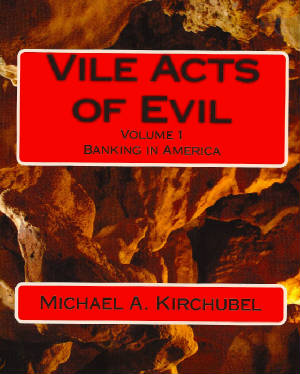Mommy, where does money come from?
As promised last Monday in this Daily Republic column, over
the next few weeks, I will attempt to tell the story of America's debt money. My own eighth grade Civics class at Fairview
Elementary never explored the subject of where money comes from, nor did any of
my history classes at Armijo High. Did
your school teach you? For something as
all-consuming as money, don't you find it strange that its story isn't part of every
school kid's basic education? The story
isn't complicated, but it is absurd.
Take a look at that wadded-up Federal Reserve Note in your
pocket or purse. That piece of paper was
printed by the U.S. Treasury Department's Bureau of Printing and Engraving,
part of our United States government, but it was issued by the privately-owned Federal Reserve. Think of the Bureau of
Printing and Engraving as a kind of glorified Kinko's and the Federal Reserve
Bank as its customer, and you will clearly understand that relationship. That relationship is described in the Federal Reserve Bank
publication, I Bet You Thought. It tells us: "The
Bureau of Engraving and Printing in Washington, D.C., a unit of the Treasury,
is responsible for printing the nation's currency. But its order to print comes from the 12
Federal Reserve Banks, not the President or Congress. The reserve banks, not the Treasury,
determine how much currency is printed."
And I bet you never thought that.
The Federal Reserve doesn't just print money willy-nilly and
give it to our government. No, like any bank, it loans the money to us and requires collateral for its loans. I'll also bet you never thought that our government would give all the
gold in Fort Knox to the privately-owned Federal Reserve Bank as collateral, but
that it's now on the bank's asset sheet, not ours.
Typically, the U.S. Treasury gives the Federal Reserve a $10,000 U.S.
Treasury bond as collateral for $10,000 in Federal Reserve notes or electronic credits. That cash is spent by our government and
becomes part of our nation's money supply. Unfortunately, the Treasury bond becomes part of our national debt and
is added to the $16 trillion we already owe. We taxpayers must pay interest on all the outstanding Treasury bonds,
notes, and bills to the tune of hundreds of billions of dollars each year. These hundreds of billions of dollars don't buy us anything. They're simply interest on money
we've spent over the last hundred and eighty years.
Every wrinkled dollar in your pocket or purse is
a dollar owed to the Federal Reserve. This
is why our nation's currency is called "debt money"; every bit of it is borrowed. In fact, almost every dollar in the entire
U.S. economy is a dollar we borrowed from either the Federal Reserve or some other
private bank and pay interest on. On the
bright side, all of our coins are issued by our government, not borrowed, so we
don't pay interest on them, and they are not part of our national debt. Thank you, pennies and dimes.
Where did the Federal Reserve Bank get their trillions of dollars
that we borrowed from them? The Federal
Reserve, like all banks, creates money out of thin air. Now, if a private corporation, the Federal
Reserve, can create money out of nothing, why can't our U.S. Treasury
Department? Why can't we bypass this whole absurd rigmarole of debt, collateral, and interest payments, and have our
government issue us our money directly? The
answer is that we CAN in fact issue U.S. currency without attached debt, and we have
done so with good results. That story, next
week.





